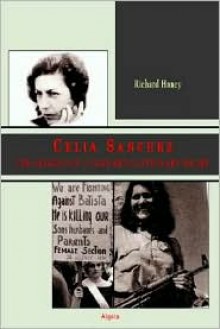Fidel Castro was powerless, in prison, when the Cuban Revolution was launched - by a tiny woman named Celia Sánchez. A fearless and brilliant organizer and recruiter, she created, nurtured, and led the insurgency that ousted the U.S.-backed dictator Fulgencio Batista, the Mafia, the Communist...
show more
Fidel Castro was powerless, in prison, when the Cuban Revolution was launched - by a tiny woman named Celia Sánchez. A fearless and brilliant organizer and recruiter, she created, nurtured, and led the insurgency that ousted the U.S.-backed dictator Fulgencio Batista, the Mafia, the Communist Party of Cuba, and the U.S. capitalists from Cuba in 1959.Castro's first two thrusts against Batista were dismal failures - the attack on the powerful Moncada Army Barracks on July 26, 1953, when everyone in his terribly outmanned and outgunned little force was either killed or captured and imprisoned; and, after two years of imprisonment, his return from Mexico on a leaky yacht in December of 1956, when 70 of his 81 rebels were quickly ambushed and killed by a Batista army as they scrambled ashore at Playa Colorado. The twelve survivors - including the Castro brothers Fidel and Raúl, Che Guevara, Camilo Cienfuegos, and Juan Almeida - were saved by and joined up with Celia's already viable guerrilla movement in the foothills of the Sierra Maestra Mountains of eastern Cuba. Only then did they begin to make a dent in the supposedly impregnable Batista arsenal. From their first meeting in the Sierras till victory was theirs in the first week of January, 1959, Castro never forgot whose revolution it was - Celia's. And from January of 1959 till she died of cancer in January of 1980, he never forgot whose Cuba it was - Celia's. And it still is, as Castro has ruled the beleaguered island even since 1980 only in the manner he perceives Celia would want him to rule it. Rich Haney has studied the Cuban Revolution for over twenty years, particularly how it relates to America. This all-consuming interest in Cuba began innocently enough. Throughout the 1970s, he was Sports Anchor/Director of WTVR-TV, the CBS affiliate in Richmond, Virginia. After airing an interview with the Brown Bomber, Joe Louis, he received a telephone call from an elderly black woman named Nora Peters. As a retired
show less

